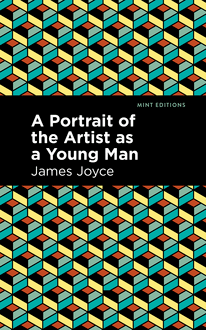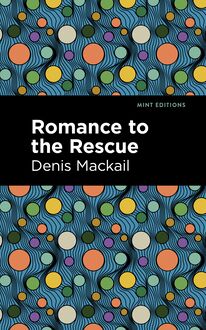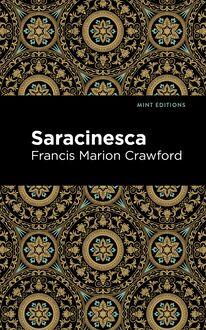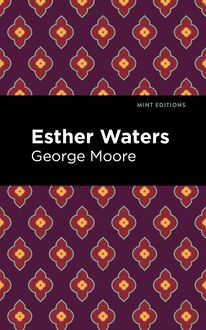-
 Univers
Univers
-
 Ebooks
Ebooks
-
 Livres audio
Livres audio
-
 Presse
Presse
-
 Podcasts
Podcasts
-
 BD
BD
-
 Documents
Documents
-
- Cours
- Révisions
- Ressources pédagogiques
- Sciences de l’éducation
- Manuels scolaires
- Langues
- Travaux de classe
- Annales de BEP
- Etudes supérieures
- Maternelle et primaire
- Fiches de lecture
- Orientation scolaire
- Méthodologie
- Corrigés de devoir
- Annales d’examens et concours
- Annales du bac
- Annales du brevet
- Rapports de stage
La lecture à portée de main
Vous pourrez modifier la taille du texte de cet ouvrage
Découvre YouScribe en t'inscrivant gratuitement
Je m'inscrisDécouvre YouScribe en t'inscrivant gratuitement
Je m'inscrisEn savoir plus
Vous pourrez modifier la taille du texte de cet ouvrage
En savoir plus

Description
Elam Harnish has more money than he would ever need. As he accumulates wealth as a successful entrepreneur in the Alaskan Gold Rush, Harnish must face the challenges of the Yukon Territory. After he makes a fortune, Harnish finds himself still unsatisfied. In efforts to find a new challenge and make more money, Harnish decides to move down to the mainland of America, settling in California. However, after a group of money kings threaten to take his entire amassed fortune, Harnish resorts to violence to recover it, endangering him both physically and morally as he slides down a slippery slope of immorality. Realizing that he can make even more money with undercut business practices, Harnish slowly becomes corrupt, making shady business deals, cheating, and being dishonest. While it gives him more wealth, Harnish soon realizes that money is not all he wants in life. After one of his employees catch his eye, Harnish resorts to harassing her for attention. However, she is a woman of strong will and morals, and refuses his advances. Harnish realizes that she will never reciprocate his attraction if he continues his shady business dealings, but what if it is too late to redeem himself?
Filled with action and suspense, Jack London’s Burning Daylight brings an exciting twist to the classic enemies to lovers storyline. Featuring two exciting settings—California and Alaska, Burning Daylight is an entertaining glimpse into the gold rush era of the United States. Through the use of amusing caricatures of hyper-masculinity and hyper-femininity, London’s romance novel also provides intriguing insight on the early 20th century gender expectations. Burning Daylight has inspired several film adaptations over the years, and was among the list of best-selling books when it was released in 1910. With adaptations and record sales, Jack London’s Burning Daylight proves that it is a prolific work able to be enjoyed by audiences even in the 21st century.
This edition of Burning Daylight by Jack London is now presented with a new, eye-catching cover and is printed in an easy-to-read font, making it both modern and accessible.
Sujets
Informations
| Publié par | Mint Editions |
| Date de parution | 19 janvier 2021 |
| Nombre de lectures | 0 |
| EAN13 | 9781513275192 |
| Langue | English |
| Poids de l'ouvrage | 4 Mo |
Informations légales : prix de location à la page 0,0500€. Cette information est donnée uniquement à titre indicatif conformément à la législation en vigueur.
Extrait
Burning Daylight
Jack London
Burning Daylight was first published in 1910.
This edition published by Mint Editions 2021.
ISBN 9781513270197 | E-ISBN 9781513275192
Published by Mint Editions ®
minteditionbooks.com
Publishing Director: Jennifer Newens
Design & Production: Rachel Lopez Metzger
Typesetting: Westchester Publishing Services
C ONTENTS P ART I I II III IV V VI VII VIII IX X XI XII XIII P ART II I II III IV V VI VII VIII IX X XI XII XIII XIV XV XVI XVII XVIII XIX XX XXI XXII XXIII XXIV XXV XXVI XXVII
PART I
I
It was a quiet night in the Shovel. At the bar, which ranged along one side of the large chinked-log room, leaned half a dozen men, two of whom were discussing the relative merits of spruce-tea and lime-juice as remedies for scurvy. They argued with an air of depression and with intervals of morose silence. The other men scarcely heeded them. In a row, against the opposite wall, were the gambling games. The crap-table was deserted. One lone man was playing at the faro-table. The roulette-ball was not even spinning, and the gamekeeper stood by the roaring, red-hot stove, talking with the young, dark-eyed woman, comely of face and figure, who was known from Juneau to Fort Yukon as the Virgin. Three men sat in at stud-poker, but they played with small chips and without enthusiasm, while there were no onlookers. On the floor of the dancing-room, which opened out at the rear, three couples were waltzing drearily to the strains of a violin and a piano.
Circle City was not deserted, nor was money tight. The miners were in from Moseyed Creek and the other diggings to the west, the summer washing had been good, and the men’s pouches were heavy with dust and nuggets. The Klondike had not yet been discovered, nor had the miners of the Yukon learned the possibilities of deep digging and wood-firing. No work was done in the winter, and they made a practice of hibernating in the large camps like Circle City during the long Arctic night. Time was heavy on their hands, their pouches were well filled, and the only social diversion to be found was in the saloons. Yet the Shovel was practically deserted, and the Virgin, standing by the stove, yawned with uncovered mouth and said to Charley Bates:—
“If something don’t happen soon, I’m gin’ to bed. What’s the matter with the camp, anyway? Everybody dead?”
Bates did not even trouble to reply, but went on moodily rolling a cigarette. Dan MacDonald, pioneer saloonman and gambler on the upper Yukon, owner and proprietor of the Tivoli and all its games, wandered forlornly across the great vacant space of floor and joined the two at the stove.
“Anybody dead?” the Virgin asked him.
“Looks like it,” was the answer.
“Then it must be the whole camp,” she said with an air of finality and with another yawn.
MacDonald grinned and nodded, and opened his mouth to speak, when the front door swung wide and a man appeared in the light. A rush of frost, turned to vapor by the heat of the room, swirled about him to his knees and poured on across the floor, growing thinner and thinner, and perishing a dozen feet from the stove. Taking the wisp broom from its nail inside the door, the newcomer brushed the snow from his moccasins and high German socks. He would have appeared a large man had not a huge French-Canadian stepped up to him from the bar and gripped his hand.
“Hello, Daylight!” was his greeting. “By Gar, you good for sore eyes!”
“Hello, Louis, when did you-all blow in?” returned the newcomer. “Come up and have a drink and tell us all about Bone Creek. Why, dog-gone you-all, shake again. Where’s that pardner of yours? I’m looking for him.”
Another huge man detached himself from the bar to shake hands. Olaf Henderson and French Louis, partners together on Bone Creek, were the two largest men in the country, and though they were but half a head taller than the newcomer, between them he was dwarfed completely.
“Hello, Olaf, you’re my meat, savvee that,” said the one called Daylight. “Tomorrow’s my birthday, and I’m going to put you-all on your back—savvee? And you, too, Louis. I can put you-all on your back on my birthday—savvee? Come up and drink, Olaf, and I’ll tell you-all about it.”
The arrival of the newcomer seemed to send a flood of warmth through the place. “It’s Burning Daylight,” the Virgin cried, the first to recognize him as he came into the light. Charley Bates’ tight features relaxed at the sight, and MacDonald went over and joined the three at the bar. With the advent of Burning Daylight the whole place became suddenly brighter and cheerier. The barkeepers were active. Voices were raised. Somebody laughed. And when the fiddler, peering into the front room, remarked to the pianist, “It’s Burning Daylight,” the waltz-time perceptibly quickened, and the dancers, catching the contagion, began to whirl about as if they really enjoyed it. It was known to them of old time that nothing languished when Burning Daylight was around.
He turned from the bar and saw the woman by the stove and the eager look of welcome she extended him.
“Hello, Virgin, old girl,” he called. “Hello, Charley. What’s the matter with you-all? Why wear faces like that when coffins cost only three ounces? Come up, you-all, and drink. Come up, you unburied dead, and name your poison. Come up, everybody. This is my night, and I’m going to ride it. Tomorrow I’m thirty, and then I’ll be an old man. It’s the last fling of youth. Are you-all with me? Surge along, then. Surge along.
“Hold on there, Davis,” he called to the faro-dealer, who had shoved his chair back from the table. “I’m going you one flutter to see whether you-all drink with me or we-all drink with you.”
Pulling a heavy sack of gold-dust from his coat pocket, he dropped it on the high card .
“Fifty,” he said.
The faro-dealer slipped two cards. The high card won. He scribbled the amount on a pad, and the weigher at the bar balanced fifty dollars’ worth of dust in the gold-scales and poured it into Burning Daylight’s sack. The waltz in the back room being finished, the three couples, followed by the fiddler and the pianist and heading for the bar, caught Daylight’s eye.
“Surge along, you-all” he cried. “Surge along and name it. This is my night, and it ain’t a night that comes frequent. Surge up, you Siwashes and Salmon-eaters. It’s my night, I tell you-all—”
“A blame mangy night,” Charley Bates interpolated.
“You’re right, my son,” Burning Daylight went on gaily.
“A mangy night, but it’s my night, you see. I’m the mangy old he-wolf. Listen to me howl.”
And howl he did, like a lone gray timber wolf, till the Virgin thrust her pretty fingers in her ears and shivered. A minute later she was whirled away in his arms to the dancing-floor, where, along with the other three women and their partners, a rollicking Virginia reel was soon in progress. Men and women danced in moccasins, and the place was soon a-roar, Burning Daylight the centre of it and the animating spark, with quip and jest and rough merriment rousing them out of the slough of despond in which he had found them.
The atmosphere of the place changed with his coming. He seemed to fill it with his tremendous vitality. Men who entered from the street felt it immediately, and in response to their queries the barkeepers nodded at the back room, and said comprehensively, “Burning Daylight’s on the tear.” And the men who entered remained, and kept the barkeepers busy. The gamblers took heart of life, and soon the tables were filled, the click of chips and whir of the roulette-ball rising monotonously and imperiously above the hoarse rumble of men’s voices and their oaths and heavy laughs.
Few men knew Elam Harnish by any other name than Burning Daylight, the name which had been given him in the early days in the land because of his habit of routing his comrades out of their blankets with the complaint that daylight was burning. Of the pioneers in that far Arctic wilderness, where all men were pioneers, he was reckoned among the oldest. Men like Al Mayo and Jack McQuestion antedated him; but they had entered the land by crossing the Rockies from the Hudson Bay country to the east. He, however, had been the pioneer over the Chilcoot and Chilcat passes. In the spring of 1883, twelve years before, a stripling of eighteen, he had crossed over the Chilcoot with five comrades.
In the fall he had crossed back with one. Four had perished by mischance in the bleak, uncharted vastness. And for twelve years Elam Harnish had continued to grope for gold among the shadows of the Circle.
And no man had groped so obstinately nor so enduringly. He had grown up with the land. He knew no other land. Civilization was a dream of some previous life. Camps like Forty Mile and Circle City were to him metropolises. And not alone had he grown up with the land, for, raw as it was, he had helped to make it. He had made history and geography, and those that followed wrote of his traverses and charted the trails his feet had broken.
Heroes are seldom given to hero-worship, but among those of that young land, young as he was, he was accounted an elder hero. In point of time he was before them. In point of deed he was beyond them. In point of endurance it was acknowledged that he could kill the hardiest of them. Furthermore, he was accounted a nervy man, a square man, and a white man.
In all lands where life is a hazard lightly played with and lightly flung aside, men turn, almost automatically, to gambling for diversion and relaxation. In the Yukon men gambled their lives for gold, and those that won gold from the ground gambled for it with one another. Nor was Elam Harnish an exception. He was a man’s man primarily, and the instinct in him to play the game of life was strong. Environment had determined what form that game should take. He was born on an Iowa farm, and his father had emigrated to eastern Oregon, in which mining country Elam’s boyhood was lived. He
-
 Univers
Univers
-
 Ebooks
Ebooks
-
 Livres audio
Livres audio
-
 Presse
Presse
-
 Podcasts
Podcasts
-
 BD
BD
-
 Documents
Documents
-
Jeunesse
-
Littérature
-
Ressources professionnelles
-
Santé et bien-être
-
Savoirs
-
Education
-
Loisirs et hobbies
-
Art, musique et cinéma
-
Actualité et débat de société
-
Jeunesse
-
Littérature
-
Ressources professionnelles
-
Santé et bien-être
-
Savoirs
-
Education
-
Loisirs et hobbies
-
Art, musique et cinéma
-
Actualité et débat de société
-
Actualités
-
Lifestyle
-
Presse jeunesse
-
Presse professionnelle
-
Pratique
-
Presse sportive
-
Presse internationale
-
Culture & Médias
-
Action et Aventures
-
Science-fiction et Fantasy
-
Société
-
Jeunesse
-
Littérature
-
Ressources professionnelles
-
Santé et bien-être
-
Savoirs
-
Education
-
Loisirs et hobbies
-
Art, musique et cinéma
-
Actualité et débat de société
- Cours
- Révisions
- Ressources pédagogiques
- Sciences de l’éducation
- Manuels scolaires
- Langues
- Travaux de classe
- Annales de BEP
- Etudes supérieures
- Maternelle et primaire
- Fiches de lecture
- Orientation scolaire
- Méthodologie
- Corrigés de devoir
- Annales d’examens et concours
- Annales du bac
- Annales du brevet
- Rapports de stage




















